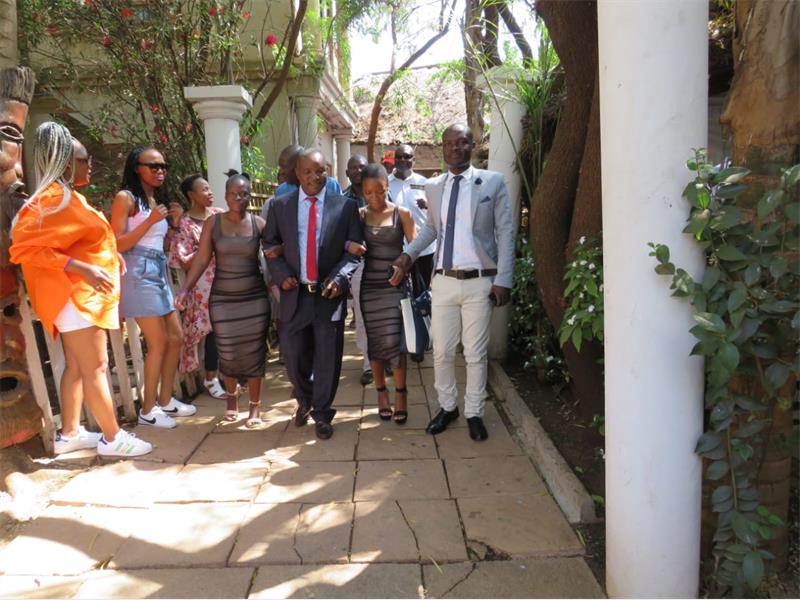GALLERY: Local community learns more about premature babies
The day is normally celebrated on November 17, but the hospital celebrated the event the day before.

Vosloorus-based Thelle Mogoerane Regional Hospital, in collaboration with Preemie Connect and Huggies, hosted a World Prematurity Day on November 15.
The day is normally celebrated on November 17, but the hospital celebrated the event the day before.
Project manager Sr Ntombizodwa Tshabalala said they felt they needed to help the community by providing lessons on prematurity, since it is a global challenge.
“Our monthly statistics show that the hospital admits 90 per cent of premature babies who take up to three months to reach the recommended weight of 1.7kg to 2kg. It became necessary to give information to the community about prematurity, its prevalence and causes,” said Tshabalala.
Tshabalala said breastfeeding was very important to mothers of premature babies.
Sr Cynthia Ntombela, operations manager of the neonatal ward, said there were many causes for a mother to give birth prematurely, such as infection, placental problems or genetic problems, but in many cases, the causes are unknown.
She said: “Certain events can stimulate the onset of premature labour, including placental abruption, an incompetent cervix, hormonal changes or infection, having a previous premature birth, pregnancy with multiple babies, drug or alcohol abuse and age.”
Mothers who gave birth to premature babies were given opportunities to share their experiences.
One of the mothers, Tasmin Bota from Preemie Connect, shared the difficulty she faced in raising her second born child who was born prematurely.
“My child was born eight weeks before time in 2017. He weighed only 108kg at birth due to a placenta abruption.
“He spent more than 54 days in hospital because of health complications, including bleeding in his brain, undescended testes and his valves in the heart were open,” said Bota.
She said most of the issues were naturally resolved except for the undescended testes, which he had to undergo surgery for.
Bota said because she gave herself enough time to learn more about raising a premature baby, her two-year-old child’s state of health is now almost 100 per cent. “Other than the fact that my baby started crawling and walking very late, everything is fine with him.”
Tevin du Toit (23), who was born prematurely, said looking at him, no one could tell that he is a premature baby.
He said being taken good care of made him a bouncy baby a few weeks after birth.
He said he only had problems when he changed from a remedial school to a normal school.
“I had a problem with fitting in and I was stuttering a lot. But speech therapy helped me a lot,” said du Toit.
He also said he faced a lot of bullying, but he managed to overcome it.
Sr Lynne Bluff shared how to care for a premature baby.
She said: “While in the neonatal intensive care unit, your baby will likely receive fluids and nutrients through an intravenous (IV) catheter, and later start breast milk or formula feedings through a tube slid through his or her nose or mouth.
“In a warm room at home, dress your infant in only a diaper, then place the baby on your chest and turn your baby’s head to one side so that his or her ear is against your heart. Research shows that kangaroo care can enhance parent-child bonding, promote breastfeeding, and improve a preemie’s health,” said Bluff.









